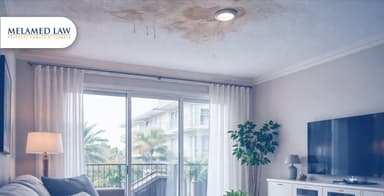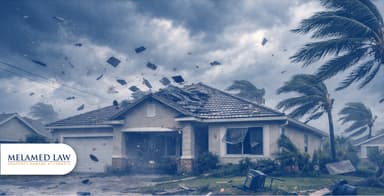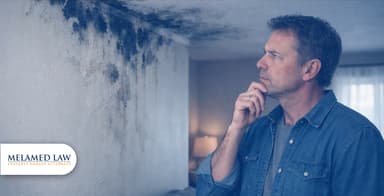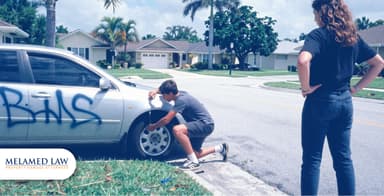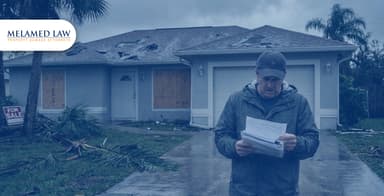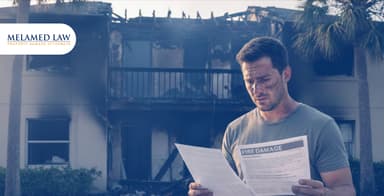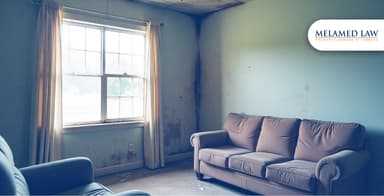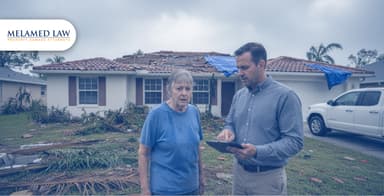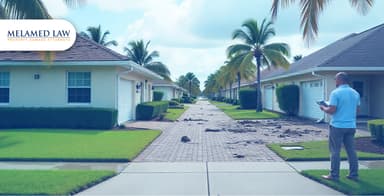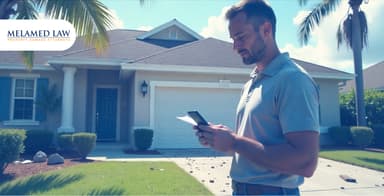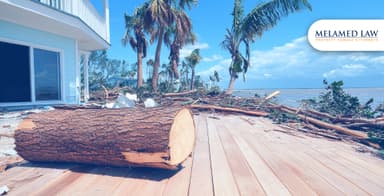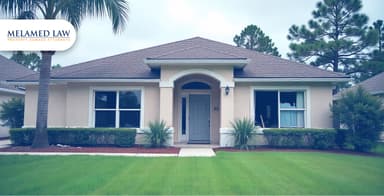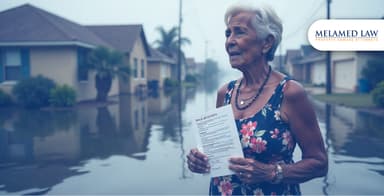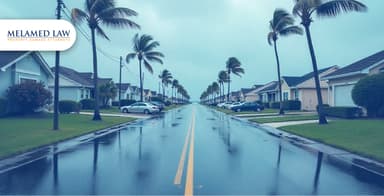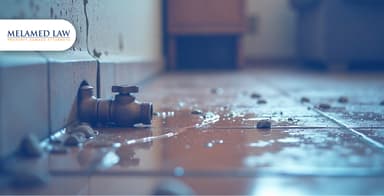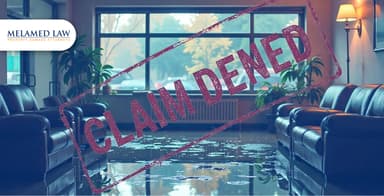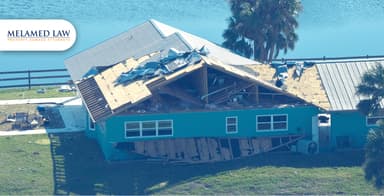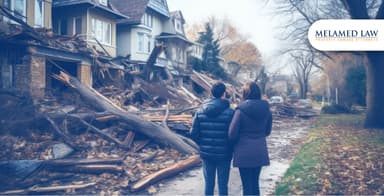
What to Do if Your Plumbing Damage Claim is Denied in Florida
When the unexpected happens, we help individuals and businesses collect the money they deserve for their insurance claims.
June 23, 2025
What to Do if Your Plumbing Damage Claim is Denied in Florida

Plumbing damage can lead to serious property loss—burst pipes, water intrusion, mold, and expensive repairs. When you file a claim with your insurance company, you expect coverage for a situation that often feels outside your control. Unfortunately, in Florida, it’s not uncommon for homeowners to receive a denial for plumbing-related claims, even when the damage seems clearly covered.
So, what are your legal options?
If your claim has been denied, that doesn’t mean you're out of luck. In fact, you may have the right to dispute the denial and recover the compensation you're entitled to under your policy. Let’s break down the steps you should take next and when it might be time to get legal help involved.
1) Florida Homes Are Soaked in Risk
Florida’s unique climate and aging housing stock make it a hot zone for plumbing-related damage. High humidity, shifting soils, and salt air all take a toll on pipes, especially in homes built before the 1980s, which often rely on outdated systems like cast iron or polybutylene plumbing. These materials weren’t made to withstand decades of use in a subtropical climate. And yet, millions of homes across the state still depend on them.
According to the U.S. Census Bureau, over 2 million Florida homes were built before 1980, many of which have never had a full plumbing overhaul
(Source: census).
That means even a slow leak today could be the result of corrosion, pressure buildup, or weakened joints that have been deteriorating for decades.
Compounding the risk, Florida's sandy soil shifts with rainfall and temperature changes, putting additional pressure on underground pipes and foundations. Slab leaks, where pipes burst beneath concrete flooring, are especially common. Yet, these are also among the hardest to detect early, which insurers often use as grounds for denying claims, calling the damage “gradual,” “unreported,” or “not sudden.”
More for you: What is the best way to dry out your house if there is water damage?
2) Why “Wear and Tear” Is the Insurance Industry’s Favorite Excuse
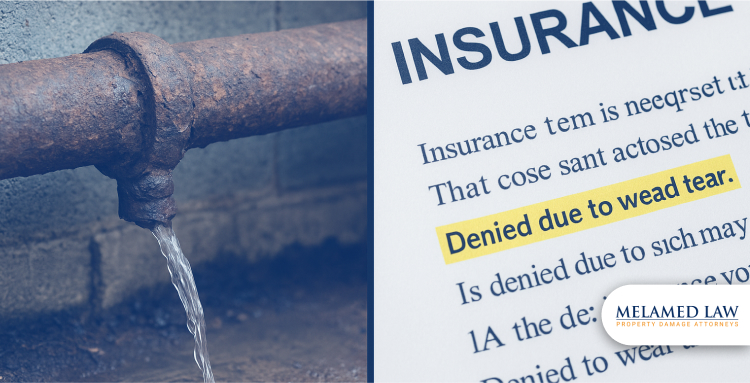
When you file a plumbing damage claim in Florida, there’s a high chance you’ll hear one phrase again and again: “We’ve determined the loss was due to wear and tear.” Most homeowner insurance policies in Florida include exclusions for damage caused by long-term deterioration, corrosion, or neglect. This includes phrases like “seepage over time,” “maintenance issues,” or the all-encompassing “gradual damage.”
These are some of the most commonly cited reasons an insurance company may deny your claim, even if you had no reasonable way to detect it. The Florida Office of Insurance Regulation has received thousands of complaints in recent years from homeowners frustrated by denied claims.
And after Hurricane Ian in 2022, insurers began applying even stricter internal reviews on all water-related claims, including those that had nothing to do with the storm itself
(Source: Florida Office of Insurance).
Insurers often blur the line between cause and effect. They point to the condition of the pipe as justification while ignoring the nature of the event. Under Florida law, what matters most is how the damage occurred, not simply that the pipe was old.
3) Don’t Panic. First Document, Then Call Us.
A denial letter isn’t the end of the road; it’s the start of your counterattack. Here’s how to move from shock to strategy in a matter of hours.
Read the Denial Line-by-Line
Grab a highlighter and dissect every paragraph. Florida insurers must tell you exactly why they refused to pay. Look for:
The date they say the loss occurred (is it accurate?)
The policy clause they’re leaning on (“gradual damage,” “maintenance,” etc.)
Any deadlines they claim you missed
Double-Down on Documentation
Your photos and receipts got you this far; now gather even more and preserve the evidence given below:
Fresh, time-stamped photos from multiple angles
a brief video walkthrough narrating the damage from room to room
written estimates from an independent plumber or restoration contractor
The adjuster’s report (ask for it in writing—Florida law gives you that right)
4) How Melamed Law Turns Denials Into Settlements
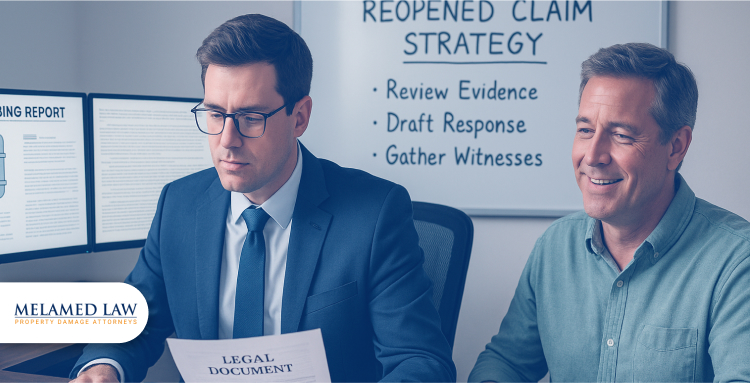
Insurance companies rarely respond to emotion, but they do respond to pressure backed by legal merit.
When you hire our firm after a plumbing damage claim denial, we don’t just file paperwork, we present a well-documented, strategic case that demands your insurer’s attention. From the moment we step in, every delay, vague explanation, or underpayment is met with knowledgeable legal advocacy and a detailed record that holds them accountable.
We Rebuild the Claim from the Ground Up
Most denials happen because the initial claim wasn’t supported by the right evidence. Our team starts by gathering exactly what’s needed:
Certified plumbing reports from licensed experts
Moisture mapping and leak detection to prove that water damage spreads quickly, not gradually
Policy review and comparison to identify every clause that favors your side
We don’t just rely on the insurer’s interpretation. We read between the lines, use Florida case law, and apply the legal definitions that courts and juries respect.
We Make Your Voice Louder Than Their Excuses
Insurance companies often hope you’ll stay silent or settle for less. With Melamed Law involved, silence isn’t an option.
We draft demand letters that cite your rights under Florida statutes
We communicate directly with their legal departments, not just frontline adjusters
And if needed, we will file suit to push your claim forward with force
We Handle the Fight; You Focus on Your Home.
Litigation can be overwhelming, but we don’t make you carry the weight. From day one, we handle
All correspondence with the insurer
Deadlines, forms, and filing logistics
Expert witness coordination
Mediation or courtroom representation if negotiations fail
You’ll get updates in plain English and honest assessments at every stage, no legal jargon. No surprises.
5) It’s Not Too Late to Reopen the Fight
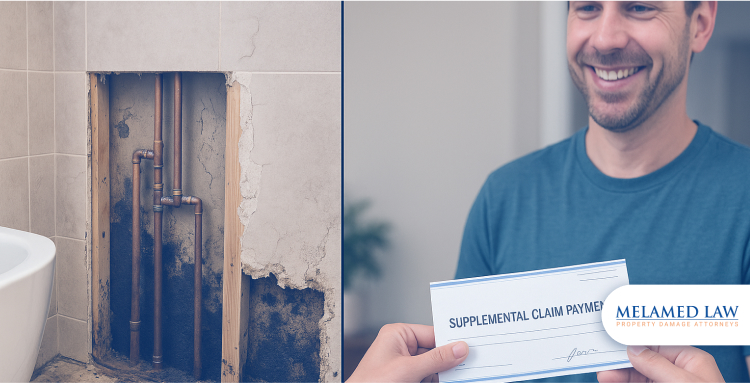
Perhaps you’ve already accepted a settlement check—maybe out of urgency, stress, or simply trying to make your home livable again. But accepting a payment doesn’t necessarily close the door on your claim. Under Florida law, many property insurance claims can be reopened, particularly when additional damage surfaces or new evidence comes to light. You may still have legal options and a second chance to pursue the compensation.
Supplemental Claims: Your Second Shot at Fair Compensation
Most Florida homeowner policies allow you to file a supplemental claim if the initial payment didn’t fully cover your loss. That includes:
New damage discovered during repairs
Missed line items in the adjuster’s estimate
Escalating repair costs or contractor overruns
Hidden mold, plumbing defects, or structural issues are uncovered later
You Took the Check, But That Doesn’t Mean You Took the Loss
Insurers hope that once they cut a check, you’ll disappear. But accepting a payment from your insurance company doesn’t always waive your rights, especially if:
The payment was marked as “undisputed” or “partial.”
You weren’t told the full extent of your coverage
You relied on an adjuster’s estimate that left things out
The damage has worsened and is connected to the original incident
We review the paperwork and tell you honestly whether your claim can be reopened. No guesswork. No wasted effort.
Let Us Get You the Recovery You Deserve
The denial is not the end. A denied plumbing damage claim doesn’t just leave you with bills; it leaves you feeling dismissed, overwhelmed, and alone in a process that was supposed to protect you. You’ve already faced the stress of the damage itself. You shouldn’t have to fight the system, too. When you work with us, we’ll handle the insurance company, the paperwork, the deadlines, and the negotiations.
You handle your life, your family, and your home. If your claim has been denied, delayed, or underpaid, don’t give up. Let’s talk. Your consultation is free, and you won’t owe us anything unless we win.
Recent Cases
